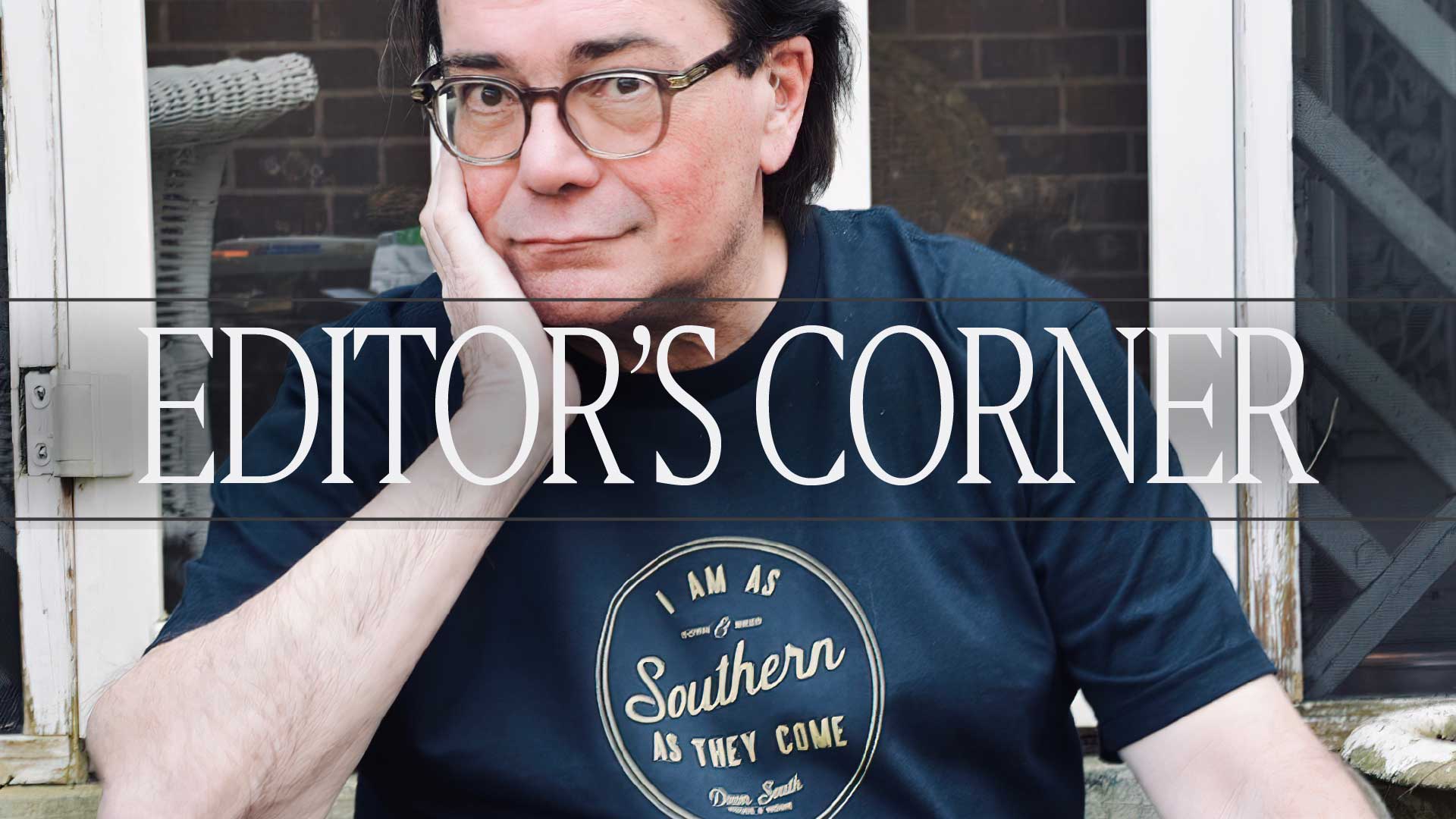
The Old Man’s Favorite Bird Dog
His dog’s name was Rusty. He was a German shorthaired pointer. Daddy said he was the best bird dog ever.
Last week, Richard Murff brought us a wonderfully funny story about his hunting dog that will not hunt. It reminded me of my daddy, who always kept a dog or two for quail hunting. And Dad’s dogs could always hunt. So if figured, why not tell y’all a dog story of my own?
His dog’s name was Rusty. He was a German shorthaired pointer. Daddy said he was the best bird dog ever.
I don’t remember much about Rusty, only the stories Daddy told me about him, because Rusty was his bird dog about the time I was born, gone before I could form memories. Daddy told me that when I was a baby, Mama would put me in my stroller in our front yard, and that Rusty would lie down in the grass next to me. He wouldn’t allow anyone to come near me unless it was Mama or Daddy. Daddy told me of Rusty’s skills as a hunter in the wintertime stubble fields of Gilmer County, how he would work his way slowly from side to side, then become stock still when he caught the scent of quail. He would point — one front leg cocked up off the ground, his tail dead straight — waiting for Daddy to whisper “Flush.” When the command came, Rusty would dive into the covey of quail, sending them skyward, making them targets for Dad’s Browning Sweet 16 shotgun.
“Ol’ Rusty,” Daddy would conclude, shaking his head and chuckling, every time he told me a Rusty story.
Daddy was a quail hunter through and through — and a quail hunter only. He never had interest in hunting deer or other game in our county. I don’t think he had much patience for sitting in a deer stand for hours, watching the same patch of ground, hoping for a buck to roam into his sight. A quail hunt, even if unsuccessful, still offers a fine walk in the woods with your dog. If you bring home some quail to eat, that’s just a bonus. I remember how they smelled — sweet and earthy — while they cooked.
Throughout my youth, Daddy always kept a German shorthaired pointer, never more than one at a time. I don’t remember their names or stories about them, because I don’t believe any of them ever earned as much esteem from Daddy as Rusty did. But I do remember taking those dogs on hunts with Daddy, once I got old enough to handle a shotgun. I remember watching those dogs work the fields. My father and I walked as quietly as possible through the frozen grass or dead corn stalks, following the dog as he applied his instincts to the business at hand. I never got past the shots of adrenaline that would hit me when the dog flushed a covey, but that was the skill you had to learn: ignore your nerves, raise your gun, pick a bird, follow it, and bring it down.
I remember the work Daddy did to train his dogs. He kept a small covey of quail in an old henhouse on our property. For training purposes, he would kill one of those birds and put it in a tin can, through which he had previously punched holes from the inside with his pocket knife, leaving the outside surface jagged. The point was to train the dog to pick up dead birds in the field gently: not eat them, but bring them intact back to his master.
I’m not sure how many folks in the North Georgia mountains still hunt quail the way Daddy did, training a dog or two so they can hunt on their own land or in quiet fields owned by friends who were happy to share the hunting grounds. I know that in South Georgia, there are many luxurious quail-hunting lodges where you can easily spend more than $5,000 for a two-day hunt. Some facilities have lower rates, but one thing is common to them all: The hunters use dogs that live on the property.
You don’t bring your own dog.
Daddy would not have liked that, because you can’t collect stories about dogs you don’t own and will never see again. My Daddy was an extraordinarily friendly and social person, but I can’t imagine him really enjoying the group hunts at a lodge — riding around in an ATV with three or four hunters and a guide.
All those fancy trappings would have turned Daddy against visiting a hunting lodge. Anyway, I think his idea of heaven was a solitary walk in the woods with ol’ Rusty. Days like that always left him with stories to tell and a big smile.
Salvation South: a User’s Manual
Today is our official day of publication. Our site now has actual stories, photographs and illustrations.
As you look at our publication, I’d ask you to pay particular attention to our homepage. Each story has a label. This week, as our storytelling gets rolling, one of those labels says “Hope,” another “Humor” and still another “Family.”
To me, those labels are much more than “stickers” that identify what each story is about. To me, they represent the qualities that define the American South as a region.
For centuries, we have faced seemingly insurmountable obstacles — like the weight of slavery’s history here — but today, thousands of Southerners are having hard conversations, trying to learn new lessons (and unlearn old ones) about racism. People like that have Hope.
Humor has always been a treasured part of our culture. As the much beloved Southern songwriter Jason Isbell once told us, “Don't worry about losing your accent, a Southern man tells better jokes.” (And actually, that goes for women, too)
Every thought that brings me hope is a quality that I associate with being proud to be a Southerner. Humor, family, hospitality, music, food, writing, art, and — at least among the best of us — an unquenchable desire for change and reconciliation.
The third label says “Family.” Any Southerner will tell you how important family is for them. Most historians will tell you this feeling evolved from our agrarian past, which means vastly different things to Southerners of different races, but both will tell you that a fierce allegiance to family produced the cement that holds Southern culture together.
Identifying Southern qualities (and Southerners of quality) will be our method as Salvation South keeps evolving. We will do stories that speak about the qualities that make Southerners who we are. Over the next few weeks alone, you will see new labels on our homepage. Food. Poetry. History. Music. Literature. Art. By the end of our first year, there will be probably be too many to shake a stick at.
But getting to the end of our first year requires your help, specifically your financial help. Beginning a publication like this from the ground up ain’t easy. I know that for a fact. I’ve done it before.
A few folks have asked me why I want to do it again. You’re 60 years old now, they say. Why not just chill, maybe write a book?
Well, I’m doing it because it’s what I do. I am never more at home, never more in tune with my purpose, than when I am bringing Southern writers, filmmakers and photographers together to define this region we call home. And I think I’m good at this job.
Please contribute to Salvation South. Our kickoff fundraising campaign still has 19 days to go. I’m glad we’ve reached a point where you can see Salvation South as it was intended — filled with good stories that don’t take you too long to read — and we hope that what you see here will inspire you to give.
And remember this: We love you, and there ain’t a damn thing you can do about it.
About the author
Chuck Reece is the co-founder and editor-in-chief of Salvation South, the weekly web magazine you're reading right now. He was the founding editor of The Bitter Southerner. He grew up in the north Georgia mountains in a little town called Ellijay.





